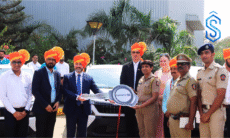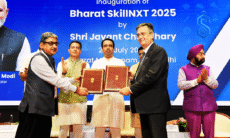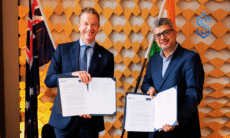Pune: In a strategic step toward advancing sustainable plastic management, the CSIR-National Chemical Laboratory (CSIR-NCL) and Covestro (India) Pvt. Ltd. have signed a Memorandum of Understanding (MoU) to jointly develop innovative polyurethane upcycling technologies under a Corporate Social Responsibility (CSR) research initiative.
Polyurethane (PU), a widely used material in products such as footwear, mattresses, furniture, adhesives, and automobiles, poses unique challenges at the end of its lifecycle due to its cross-linked structure and resistance to degradation.
Current polyurethane upcycling methods are inefficient, energy-intensive, and often result in quality degradation.
This collaboration aims to overcome these limitations by developing novel chemical and electrochemical depolymerisation strategies to convert PU waste into high-value chemical feedstocks, effectively enabling a circular economy model for polyurethane products.
“We are thrilled to partner with Covestro India in this cutting-edge initiative,” said Dr Ashish Lele, Director of CSIR-NCL. “This project directly addresses the limitations of conventional recycling technologies and represents a leap toward scalable and sustainable polyurethane upcycling.”
Polyurethane Upcycling: Scientific and Industrial Collaboration for Circularity
CSIR-NCL will spearhead the research through its expertise in polymer science and plastic waste deconstruction, while Covestro India, a global leader in sustainable polymer materials, will contribute strategic industrial insights aligned with its vision for complete circularity.
“This partnership represents the perfect synergy of world-class research and industrial application,” said Avinash Bagdi, Director at Covestro India.
“We are committed to sustainability, and this project brings us closer to creating a closed-loop system for polyurethane materials.”
Also Read: Kan Biosys Launches ROFA Fertilizers and Neem-Based Solutions for Sustainable Farming
The joint research initiative will explore both conventional and electrochemical pathways to create efficient, scalable, and eco-friendly solutions for PU waste – a growing global concern with limited current recycling solutions.
This MoU marks a major step in India’s pursuit of innovative circular economy solutions, combining public research excellence with private sector leadership to create impactful environmental outcomes.










